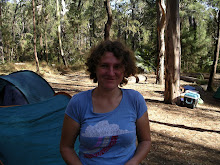Having read Carolyne's blog (another GDLT student) concerning access to technology I consider podcasting quite accessible. You do need a computer of course, microphone and speakers and the correct software. A connection to the Internet is a bonus as you can publish on the school Wiki or web page, or even blog. Going back, a podcast is an audio recording. A bit like the 1980s when we used to record our voice on tape players (seemed advanced then), but this time on the computer.
How could you use this in the classroom? How can you encourage those shy or slow readers to excel? Have them read aloud and be published on the class Wiki. Even mum and dad can listen to them. What about those confident readers ahead of the rest? Record a book for those keeping up to listen to as they read. Of course feedback is continuous allowing improvement from formative assessment and deeper learning. This authentic base gives the students challenges and motivation.
Though it's not just literacy and intrinsic motivation here. Students can podcast their own school news, project related interviews, results of collaborative projects, revision and even weekly summaries on what they have learnt. My favourite is story writing. Write their own stories in a group, develop the characters, then record it with different voices and sound effects. Of course this can be reviewed by all, even by children in other countries on the world wide web.
All of this learning must take place in a comfortable environment. There are a number of strategies to help students develop a positive attitude and perception about the classroom environment and the classroom tasks in Dimension of Leaning 1 (Marzano, R & Pickering, D.1997). Importantly to "feel accepted by teachers and peers and experience a sense of comfort and order". Tasks must be clear, understood and have all the necessary resources available. The task must be interesting and within reach, followed by positive feedback. These are a few of the ideas Marzano and Pickering have to support learning.
Teachers can use podcasts too. Introducing or revising a topic, student listening and recording with a picture or graphic, are the obvious, I hope to discover many more. Here are a couple of resources worth looking at:
www.downs.kent.sch.uk
The Downs Primary School web page is inspiring!
For recording your podcasts, a widely used free download is Audacity. Not forgetting the RSS feed if you are publishing to inform the members (school and parents) when a new podcast is up (Google Feedburner, for example).
I look forward to trying this all out!
Happy podcasting,
Johanna
References
Marzano, R & Pickering, D. (1997). Dimensions of Learning: teacher's manual (2nd ed.). Alexandria : ASCD.
www.edutopia.org/podcasting

No comments:
Post a Comment